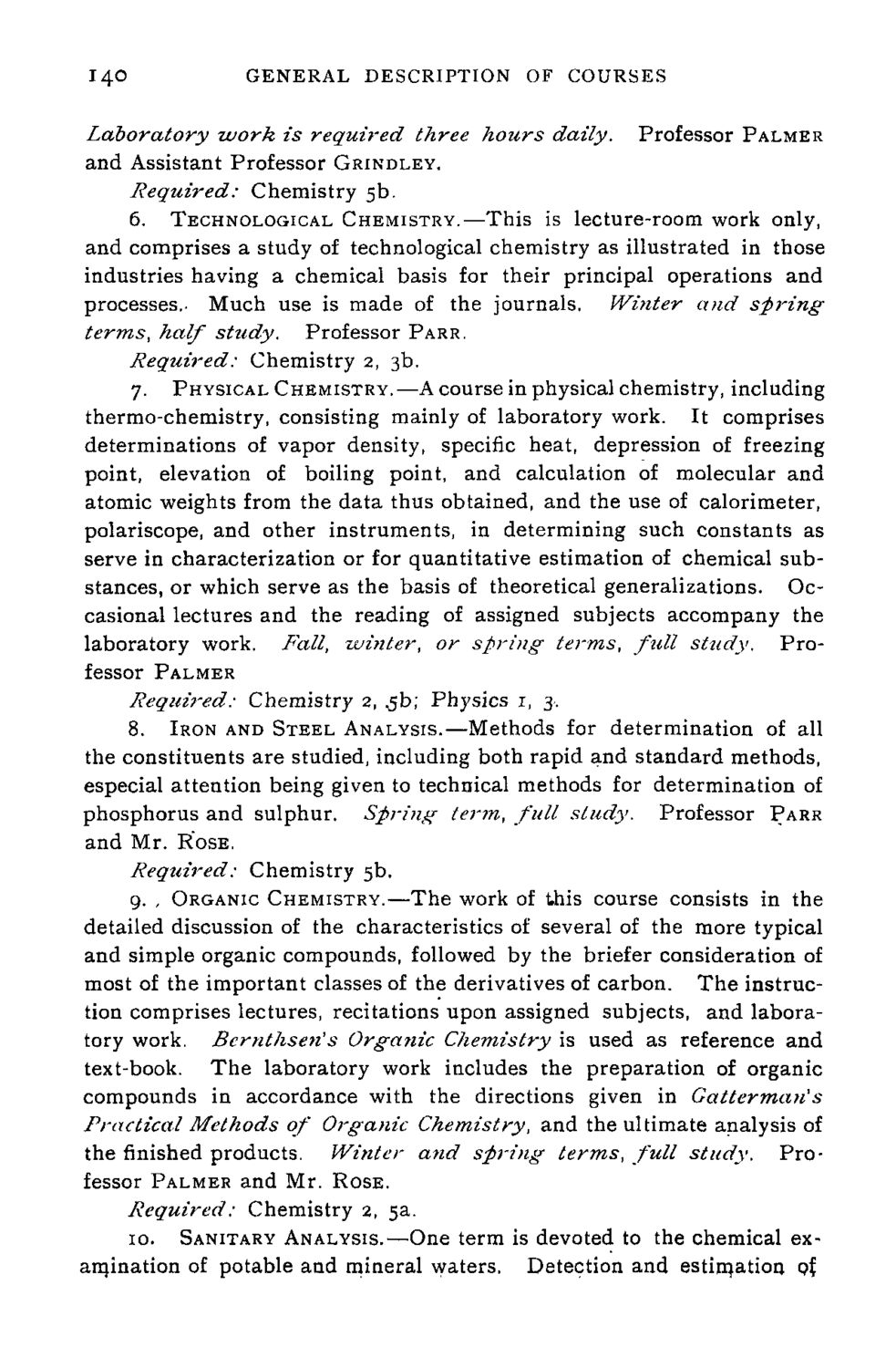| |
| |
Caption: Course Catalog - 1896-1897
This is a reduced-resolution page image for fast online browsing.

EXTRACTED TEXT FROM PAGE:
14° GENERAL DESCRIPTION OF COURSES Laboratory -work is required three hours daily. Professor PALMER and Assistant Professor GRINDLEY. Required: Chemistry 5b. 6. TECHNOLOGICAL CHEMISTRY.—This is lecture-room work only, and comprises a study of technological chemistry as illustrated in those industries having a chemical basis for their principal operations and processes.. Much use is made of the journals. Winter and spring terms, half study. Professor PARR. Required: Chemistry 2, 3b. 7. PHYSICAL CHEMISTRY.—A course in physical chemistry, including thermo-chemistry, consisting mainly of laboratory work. It comprises determinations of vapor density, specific heat, depression of freezing point, elevation of boiling point, and calculation of molecular and atomic weights from the data thus obtained, and the use of calorimeter, polariscope, and other instruments, in determining such constants as serve in characterization or for quantitative estimation of chemical substances, or which serve as the basis of theoretical generalizations. Occasional lectures and the reading of assigned subjects accompany the laboratory work. Fall, ivhtter, or spring terms, full study. Professor PALMER Required: 8. Chemistry 2, 5b; Physics i, 3. IRON AND STEEL ANALYSIS.—Methods for determination of all the constituents are studied, including both rapid and standard methods, especial attention being given to technical methods for determination of phosphorus and sulphur. Spring term, full study. Professor PARR and Mr. ROSE. Required: Chemistry 5b. 9. , ORGANIC CHEMISTRY.—The work of this course consists in the detailed discussion of the characteristics of several of the more typical and simple organic compounds, followed by the briefer consideration of most of the important classes of the derivatives of carbon. The instruction comprises lectures, recitations upon assigned subjects, and laboratory work. Bcrnthsen's Organic Chemistry is used as reference and text-book. The laboratory work includes the preparation of organic compounds in accordance with the directions given in Gatterman's Practical Methods of Organic Chemistry, and the ultimate analysis of the finished products. Winter and spring terms, full study. Professor PALMER and Mr. ROSE. Required: Chemistry 2, 5a. 10. SANITARY ANALYSIS.—One term is devoted to the chemical examination of potable and mineral waters. Detection and estirnation p{
| |